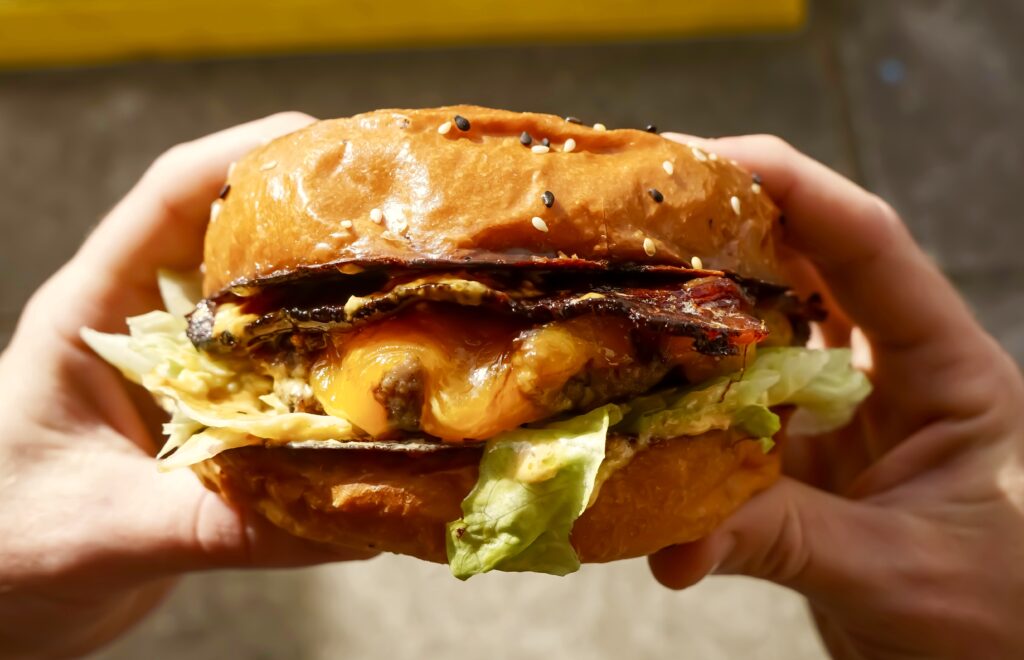
The pleasure principle is the instinctual drive that all us mammals have to pursue pleasure and avoid or reduce physical or emotional discomfort. Got a dog in the back yard on a hot sunny day? Well, it’s hardly surprising when your cagy canine moves to the shade. Out hiking and find yourself between a grizzly bear and her cubs? Well, Ma grizzly’s anxiety just shot through the roof –and you don’t have to be Nostradamus to predict what this apex predator will do next do reduce her anxiety…
Because the pleasure principle is extremely adaptive, it is hardwired into all mammals’ brains –including ours. Are all mammals slaves to the immediacy of the pleasure principle? Not exactly. As everyone knows, any black bear worth his salt will suffer angry bees (in the moment) to get to the honey. That said, the pleasure principle is very here and now oriented, and it always has a seat at our decision making table. Put another way, the pleasure principle is constantly asking whether the next action we are considering (move into the shade, maul that wayward hiker, etc.) will make us feel better or worse in the moment. With all that in mind, if we do not bring anything else to our decision making table, it will be the pleasure principle that is calling the shots.
So how does the pleasure principle work?
Well, as the photo at the top of this post suggests, the pleasure principle can certainly take the form of immediate gratification –my goal is to make healthy food choices, but Big Bob’s Belly Buster Burgers are the bomb! When it comes to changing bad habits that are grounded in immediate pleasure (junk food, drugs, alcohol, smoking, etc.) immediate is the operative word. As in, passing on doughnuts that your coworker brought to the office is far more challenging than taking the time and effort to drive to your local doughnut shop!
So, the pleasure principle is all about pleasure in the moment?
Not exactly. In fact, the pleasure principle is in full swing in virtually all forms of procrastination –putting off all manner of behaviors that will be uncomfortable in the moment. Because the pleasure principle is hardwired into all of us, overcoming the challenge of procrastination is a tall order!
By way of example… Remember that seventh grade book report that you were told about six weeks in advance? Well, for six weeks (minus the last day or two) your pleasure principle consistently asked whether you would rather be doing what you are currently doing or would you rather get started on that book report. As we all know, we waited until the last minute, pulled an all nighter, and ended up cranking out a fairly lame account of the Red Badge of Courage…
Well, how did that last minute “all nighter” work visa vie the pleasure principle? After all, that “all nighter” was anything but pleasant!
No doubt -but the pleasure principle was still calling the shots! At some point the discomfort of not having started the report became greater than the discomfort of getting started. As alluded to –this “tipping point” typically occurs a day or two before the deadline.
After going though all that Hell, surely all of us learned a valuable “life lesson” and mended our wayward procrastination ways…?
Well, if experience informed “logic” were the only horse that was pulling our cart –that would certainly be the case. Of course, we are humans, and our brains basically have two operating systems: the part of the brain that all mammals have and the part of the brain that allows us humans to set goals for ourselves. Put another way, the pleasure principle has been instrumental in the success of all mammals throughout the last seventy million years –and it simply does not go away when it runs counter to our goals! After all, if the pleasure principle didn’t always have a prominent seat at our decision making table –what heartfelt New Year’s Eve resolutions would ever go unmet?
Is the pleasure principal in play when we are feeling down, stressed, or anxious?
Absolutely! As to how the pleasure principle works when it comes to depressed mood and all manner of anxiety -well, that is a separate (and somewhat lengthy) topic. That said, it is worth noting that depression and anxiety strongly pull for behaviors that lessen our discomfort in the moment but perpetuate (and often exacerbate) the low mood problem overall –hardly seems fair, but there you have it…
Well, the pleasure principle is but one of multiple issues we face when striving to achieve our goals -be they overcoming low mood, breaking unhelpful habits, or not being a slave to immediate gratification. At Thrive Psychology Consultants, we specialize in helping our clients achieve and maintain healthy goals. To learn more about us and our approach to working with clients, just link to our site http://https//galleriapsychologist.com
Want to leave a comment? Great! We welcome dialogue and feedback! Just so you know, Thrive Blog is a secure website, and all comments are reviewed before they are published. You don’t need to provide your email address or a website address in order to post a comment! Your name will not be published -just your initials.
